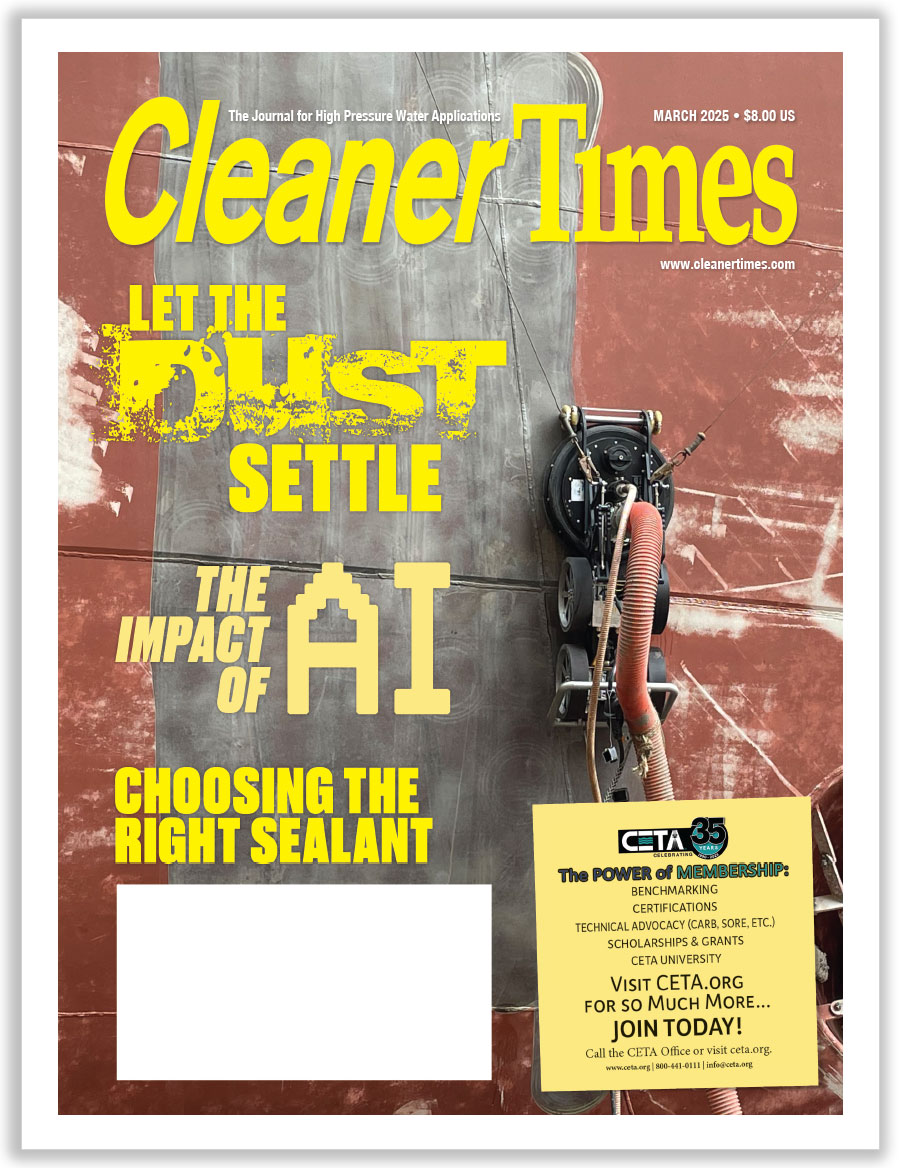
Earn a Place on the Links
Selling to Golf Courses
By Diane M. Calabrese / Published April 2017

Plenty of people consider golf a way to make a perfectly good walk even better. (Whether or not Mark Twain actually said golf is a good walk spoiled is still the subject of vigorous debate.) According to the National Golf Foundation (NGF) in Jupiter, FL, there were more than 14,000 golf facilities operating in the United States at the end of 2015. All of them were at least 18-hole equivalent courses.
Although the NGF cites some decline in committed golfers across the last five years, total golfers collectively have remained near 25 million. Spectators who watch televised tournaments number around 80 million. Recall an image of any course from Augusta, GA, to Palm Springs, CA, and then try to characterize it in one word. Beautiful, green, and inviting all come to mind.
Clean and green are increasingly defining features of a golf course. Golf courses have become exemplars of what landowners can do to reduce water use, protect wildlife habitat, recycle water, protect wetlands and riparian communities, and generally be kind to the environment.
Entities that keep the environment front and center, such as the Audubon Cooperative Sanctuary Program and the Environmental Protection Agency, work closely with golf courses. Environmental awareness in the golf community is well illustrated by a collection of Best Management Practice Case Studies from the USGA. (The United States Golf Association is headquartered in Charleston, SC.)
The USGA BMPs are available via www.usga.org/course-care/water-resource-center/bmp-case-studies.html. A case study from the Maple Leaf Golf and Country Club in Port Charlotte, FL, reports the installation of equipment from ESD Waste2Water Inc. in Ocala, FL, a system that collects, filters, and then stores wastewater for future use. The system gets high use because clippings and dirt must be washed from mowers and other equipment daily.
Water reclamation, filtering, and recycling are such an integral part of golf courses that contractors who want to work on site must be prepared to meet high expectations. That presents opportunities for distributors.
“We are seeing many more sales for water recovery and filtration and portable dams from contractors,” says Kevin Netzer, sales manager at Ultimate Washer Inc. in Jupiter, FL. “This tells us that the sites they are cleaning are insisting on protecting their drainage from runoff as well as being compliant to their local environmental agency and EPA guidelines. So, it really is not a matter of choice in a lot of areas, but instead a requirement. We hear many contractors say their customer wants us to do this now to keep the cleaning contract. If they do not comply, the golf course finds someone that can comply.”
Distributors
A distributor selling to golf courses benefits both from experience and location.
Deep in the Sunshine State, Netzer’s company has significant experience with golf courses.
“One well-known, private golf course here in the Jupiter area where we operate is the Trump National Golf Club,” he explains. “Across from that is the private residential club, Frenchman’s Creek, which also maintains a golf course. Since they are right across from each other, there is always a silent competition of who can have the best curb appeal at the front entrance to attract guests and new residents.
“Golf club memberships in this area can be as high as $50,000 annually,” continues Netzer. “It goes without saying that this is a lot of money at stake. Frenchman’s Creek called us and asked if we could do a site visit. They wanted a pressure trailer and tank setup for the main entrance and long drive to the clubhouse. They felt that they could buy the trailer and pay staff for less than hiring a contractor to do it periodically. The problem was they wanted a demo of the unit. We build trailers to order, so this was not practical for us.”
What worked was a bit of creative enterprising. “The prospective buyer insisted and said they would buy only if they could see it operate,” explains Netzer. “We persuaded them to use a smaller cart-mounted unit to see what pressure would do the job. We did a site visit with that unit. They were satisfied, and as a result placed an order for a trailer pressure washer with dual gun set-ups so two can operate at once. It was a win for us and them.”
The approach for distributors selling to golf courses mirrors that for all sectors: Know what the customer plans to do with the equipment. “What we usually ask is, “What else can you or will you be using the pressure washer for?” says Netzer. “Often we find that they realize they can use the equipment on other areas of the property, too. Since the go-to unit is an electric wall mount, maybe we will recommend a portable gas unit instead.”
From there it’s a discussion of pressure requirements for the intensity of cleaning anticipated. “Then, after assessing all the cleaning applications, we can talk about the tools and accessories needed for the jobs,” says Netzer. “Sometimes noise level is a factor, too,” says Netzer. “Then, golf course customers prefer electric units, to not be loud and offensive while members are golfing in the area.”
Contractors
Distributors probably can do more selling in the golf-course niche than contractors, but there is work for contractors. “Courses seem to have their own staff work on cleaning the carts as they go through the return area,” says Netzer. “It is typically done with a 1500 psi electric wall-mount pressure washer. This allows for easy installation in an exterior cleaning area and is compact and space efficient. Oftentimes, golf clubs are sensitive about letting contractors on site, so we find that more often than not, we deal directly with club staff. Being in South Florida, we are in prime golfing country. There is a lot of opportunity for this type of product across the country, however.”
Contractors seeking to provide services to golf courses should take a wide view. “Parking areas to and from the clubhouse will need flat surface cleaning,” says Netzer, citing one example. “These can be very large areas and generally are not left for staff to do.”
The benefit to starting with something like a parking lot is it allows “contractors to get their foot in the door,” says Netzer. “In some cases, the entrances may have entrance sign-age and guard shacks that also need attention. Cleanliness of these areas is of high importance to the golf clubs since it makes that first impression on their guests.”
Manufacturers
A manufacturer that devises a way to meet or better meet a need can also sell to golf courses. See the sidebar on page 24 for the story of a former golf course superintendent who developed a product that prevents battery acid from golf carts (and other electric vehicles) from staining and contributing to deterioration of the substrate. The product is welcomed at golf courses and in golf communities and homeowners associations where carts routinely are used beyond the course.
There’s always a way to clean more efficiently, and especially with less water. Golf clubs can be cleaned manually with soap and water. Or, they can be cleaned with a washing system.
The Riveer TourSpin Club Washer, manufactured by TourSpin Club Washer of South Haven, MI (tourspinclubwasher.com), washes a full set of irons and hybrids in under a minute. The system uses spinning Venturi nozzles and water under pressure to clean clubs. It also incorporates an automatic ball washer and an air hose for blowing debris off shoe spikes.
U.S. Aqua Vac, located in Crete, IL, makes equipment to remove silt and sediment from ponds. The approach replaces dig and drain methods, making it friendlier to the environment.
Believing there’s a solution to every problem gives a golfer a real edge when he is trying to get out of a sand trap and compensate for the bogey on the last hole. The same sort of can-do attitude earns distributors, contractors, and manufacturers a place on the links.
Golf Carts, On Course and Off
Contributed by Craig Harrison, Front 9 Restoration Inc., Palm Desert, CA
Orange battery stains from electric vehicles are unlike any other stains a homeowner, golf course, or commercial property manager could have. These stains are not rust but are actually an acid burn. Battery stains are considered hazardous, toxic, corrosive, and carcinogenic, and they are typically composed of 31–50 percent sulfuric acid.
Unlike other diluted acids, such as hydrochloric, phosphoric, oxalic, vinegar, water, etc., sulfuric acid will not be neutralized by the alkalinity in the concrete. Sulfuric acid can stay active for many years, reactivate when wet, and continue to grow and expand, deteriorating the concrete as it ages. This is why many of those “orange stains’ you see on a driveway get bigger and bigger every time it rains or gets wet. If your customer has white stains, this is even more serious and should be neutralized immediately.
Golf courses and golf cart communities pose an excellent avenue for pressure washing contractors to make additional income. F9 BARC, by Front 9 Restoration Inc., was specifically designed to handle orange battery stains and rust. As a former golf course superintendent turned restoration contractor, I know this industry well, which is ultimately why I developed our products.





